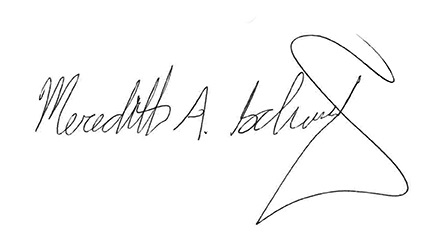Challenging Times | Editorial
Book challenges are, of course, nothing new to libraries. But they are ramping up in both frequency and intensity, and will take teamwork to resist.
More book challenges take teamwork to resist
 Book challenges are, of course, nothing new to libraries. But they are ramping up in both frequency and intensity. Books about current and historical racism are being censored on the grounds that they are divisive. Books that talk about trans, gay, and bisexual people are being removed on the grounds that they are obscene.
Book challenges are, of course, nothing new to libraries. But they are ramping up in both frequency and intensity. Books about current and historical racism are being censored on the grounds that they are divisive. Books that talk about trans, gay, and bisexual people are being removed on the grounds that they are obscene.
The latter is being used to weaponize existing obscenity laws against libraries that buy materials to help LGBTQIA+ kids and teens. Whether these anti-book activists intend to try to get a case to the Supreme Court—and whether, if they did, the Court would overturn the broad protections that have long been settled case law—we can’t yet know. But they don’t have to do so to create a significant chilling effect.
School librarians—as well as teachers, principals, superintendents, and school boards—are facing the brunt, with two governors (and counting) weighing in against school library books at press time. See SLJ's coverage for the latest updates.
However, public libraries are far from immune. We’ve already seen local police and prosecutors asked to bring a case against public library staff in Wyoming. While they ultimately declined to do so, the fact that they felt the question merited serious consideration is scary in itself.
It’s meant to be. Library workers with limited political capital to spend on everything they want to get done in their communities may well think twice about expending it on these issues when they could take the controversial material out of the classroom and put it into the school library, or out of the school library and into the public library, or out of the public library children’s section and into the adult section, or out of the stacks and behind the desk.
There are a lot of little decisions librarians make every day that make books more or less accessible. That work is inherently subjective. And it’s not realistic for librarians not to consider community reaction when making those choices. The community is, after all, who library workers are making those choices for—and, ideally, with. But the community is much more than its loudest members. And it’s particularly important to demonstrate that to those who have good reason to be unsure of their welcome.
We must also realize that these campaigners aren’t going to go away because they’ve been given their way in something small. Success is more likely to embolden them to ask for the next step toward total removal. We’ve already seen challenges of displays in teen and adult sections on the grounds that children will see them—and a challenge to a program that provides public library cards to students, despite offering a parental opt out.
While challenges are brought locally, the people bringing them are not operating in isolation. Whether challenges are “astroturfed” by external groups or raised by local community members, these challengers, like those who oppose Drag Queen Story Times or conduct filmed “First Amendment audits” in libraries, are talking to one another at a national level. They’re using a common playbook, and learning from one another’s successes and failures.
We must, too. We have the tools—the American Library Association Office for Intellectual Freedom not only tracks challenges, it provides confidential support, consulting services, training, and more. The National Coalition Against Censorship also offers help, as does PEN America, and no doubt many state and regional groups. EveryLibrary offers a petition to lawmakers (bit.ly/ELpetition). But the tools work only if we use them.
When still battling other issues caused by the pandemic, budget cuts, and staffing shortages, it can be hard for librarians to pull back from local context enough to follow what’s going on elsewhere. But it’s crucial. Library staff targeted by these proliferating challenges don’t have to, and shouldn’t, go it alone.
Public libraries leaders can reach out to school district partners to offer support. And, importantly, they can educate their stakeholders—defined broadly to include police, prosecutors, and state lawmakers. The more context they have about what’s going on ahead of a local challenge, the better prepared they will be to face it when it comes.

RELATED
ALREADY A SUBSCRIBER? LOG IN
We are currently offering this content for free. Sign up now to activate your personal profile, where you can save articles for future viewing









Add Comment :-
Comment Policy:
Comment should not be empty !!!